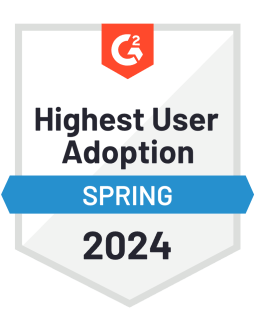No doubt by now you’ve read about the benefits of influencer marketing, particularly when it comes to generating brand awareness and acquiring qualified leads.
Your ROI when working with social media influencers can increase by 11%, with businesses making an average $6.50 per $1 spent on influencer marketing. The majority of digital marketers (51%) claim that they’ve received higher-quality leads after working with the right influencer, and 31% of US- and Europe-based consumers claimed to have made a purchase based on an influencer’s recommendation.
The playing field for influencers has only broadened with the introduction of more social channels for them to dominate. One such platform? TikTok.
As the most downloaded app on the App Store as of 2018, TikTok is recognized universally as the social media platform to watch out for in 2020, especially when targeting younger demographics.

Source: Sensor Tower
Challenges marketers face using TikTok
Before we move on with some tips for a successful TikTok influencer marketing campaign, it’s important to understand the key challenges that will inform the way you develop your strategy:
The Gen Z audience hates feeling marketed to. Younger audiences don’t respond positively to brands who market to them traditionally. They tend to skip ads when given the chance, use ad-blockers, and they don’t watch traditional TV.
Fake influencers. As is the case on other social media platforms, fake influencers can be an issue on TikTok, so marketers have to do a lot of homework to make sure that they detect any issues before they come up.
Privacy issues. TikTok has come under fire for its data and privacy concerns, even receiving a $5.7M fine from the Federal Trade Commission (FTC) for questionable practices, including exposing locations of users who are under 13 years of age.
The minor issue. Related to the previous point, because several TikTok users are minors, this can be a big challenge for marketers to comply with policies relating to marketing to children and underaged users. TikTok claims it has deleted accounts of users they believe are underage, but marketers must still be wary.
How to effectively work with TikTok influencers
Knowing your goal and setting concrete targets will help you determine the kind of campaign to run as well as the type of influencer that is best aligned to help you execute your campaign.
Have a clear goal
Why do you want to use TikTok as a marketing platform? Is it to push awareness for new products or services? Is it to convert more sales? Based on your goal, the strategy around your influencer marketing campaign will differ drastically.
For example, if your goal is to drive sales, you may want to focus on niche influencers who are less prominent (and thus have less social proof), but more aligned with a hyper-specific target demographic.
Know your audience
Knowing your audience sits at the heart of any effective influencer marketing strategy, regardless of the platform you are on. Knowing your audience goes far beyond age and location – absolutely crucial things to take into account are other brands they engage with and the type of influencers they engage with.
You can create a buyer persona to help you identify these important characteristics about your audience while keeping all the information in one handy place. The goal of this buyer persona is to create actionable pictures of the common traits, goals, and even problems your audience has.
Carefully choose the influencers you work with
This is obviously the most critical element of any influencer campaign. Don’t choose to work with just any influencer with views and likes – as mentioned earlier, less prominent influencers with less social proof often provide a much better ROI if their content and audience align well with your brand.
An influencer marketing platform can help you in this area by making it easier to find the right influencers and also to better measure the results of their campaigns.
Here are a few things you should be looking at when you’re deciding on which influencers to tap for your TikTok campaign:
Relevance of their content with your goals and brand. Do they create content directly or indirectly related to topics in your industry or niche? How much do they know about competing brands and trends in your industry? Are they thought leaders?
Activity and content on other platforms. Some of the most effective influencers use multiple platforms, so look out for those who have a presence on more than one. For promising up-and-comers, consider encouraging them to start a blog and actually create a funnel that converts for your brand instead of relying on TikTok. In the end, just because something trends doesn’t mean it will sell, as ROI of virality on TikTok isn’t always guaranteed.
Who their followers are. You’ll need to check if your target audience engages with the influencers you select for your campaign. The entire point of influencer marketing is to make sure you reach your audience through a trusted individual in your niche.
Engagement rates. How consistent are engagement rates for the different types of content they put out? Influencers with more consistent engagement figures tend to have more trust established with their audience, whereas the opposite is true for influencers that only get high engagement rates for hyper-specific content.
For example, a gaming personality who only gets high engagement rates for content posted about a specific video game has less influence compared to a personality who gets steady engagement across multiple games.
To help you in your search, you’ll want to invest in the right influencer identification tool. You can easily find the right influencers, track their relevance to your brand, and see their engagement rates at a glance.
Understand how TikTok Works
TikTok is a space for video creators to show off their creative side, so understand how TikTok operates and fits into the lives of users. For example, several AI effects are often a key part of producing videos, and being familiar with these functions can help you see the appeal of the app for its audience.
Give the influencers room to do their own thing
Jumping off the previous point, because TikTok values creativity, it’s important to give influencers creative license to help execute your campaign.
You ought to have a playbook to guide their messaging and perhaps give inspiration, but this playbook shouldn’t be restrictive or else influencers will come off as inauthentic or will refuse to work with you.

Cash App used a song to go viral on TikTok after working with influencers.
Opt for a commission-based payment model
To encourage influencers to keep promoting your brand in the long-term, you might want to consider paying them via commission instead of a one-time fee. This can become a passive income stream for the influencers and can assure you that quality influencers are constantly starting conversations about your brand.
Set clear rules to make sure they comply with FTC guidelines
Social media platforms often come under fire for a myriad of privacy concerns. It’s best to stay on top of these consumer data and privacy issues by informing influencers of important guidelines to remember when promoting your brand.
These guidelines include making several disclosures and disclaimers clear in their content or profiles. You’ll want to include these FTC guidelines in your influencer marketing playbook so you don’t get in trouble.
Besides, TikTok has long had questions and concerns raised about the way it manages and shares consumer data. While experts suggest that these concerns won’t drastically hurt the platform’s performance, particularly for brands and advertisers, it’s still in your best interest to implement your own FTC-compliant practices.
The takeaway
Are you convinced TikTok is the next best thing for your brand? Be sure you make the most of your influencer marketing strategy by following the tips above to create an effective, high-converting TikTok marketing campaign.
Start reaching out to these influencers on TikTok, set those targets and goals, and keep experimenting to see your brand image explode.
Editor's Note: This article was originally published on socialbakers.com. Any statistics or statements included in this article were current at the time of original publication.



































